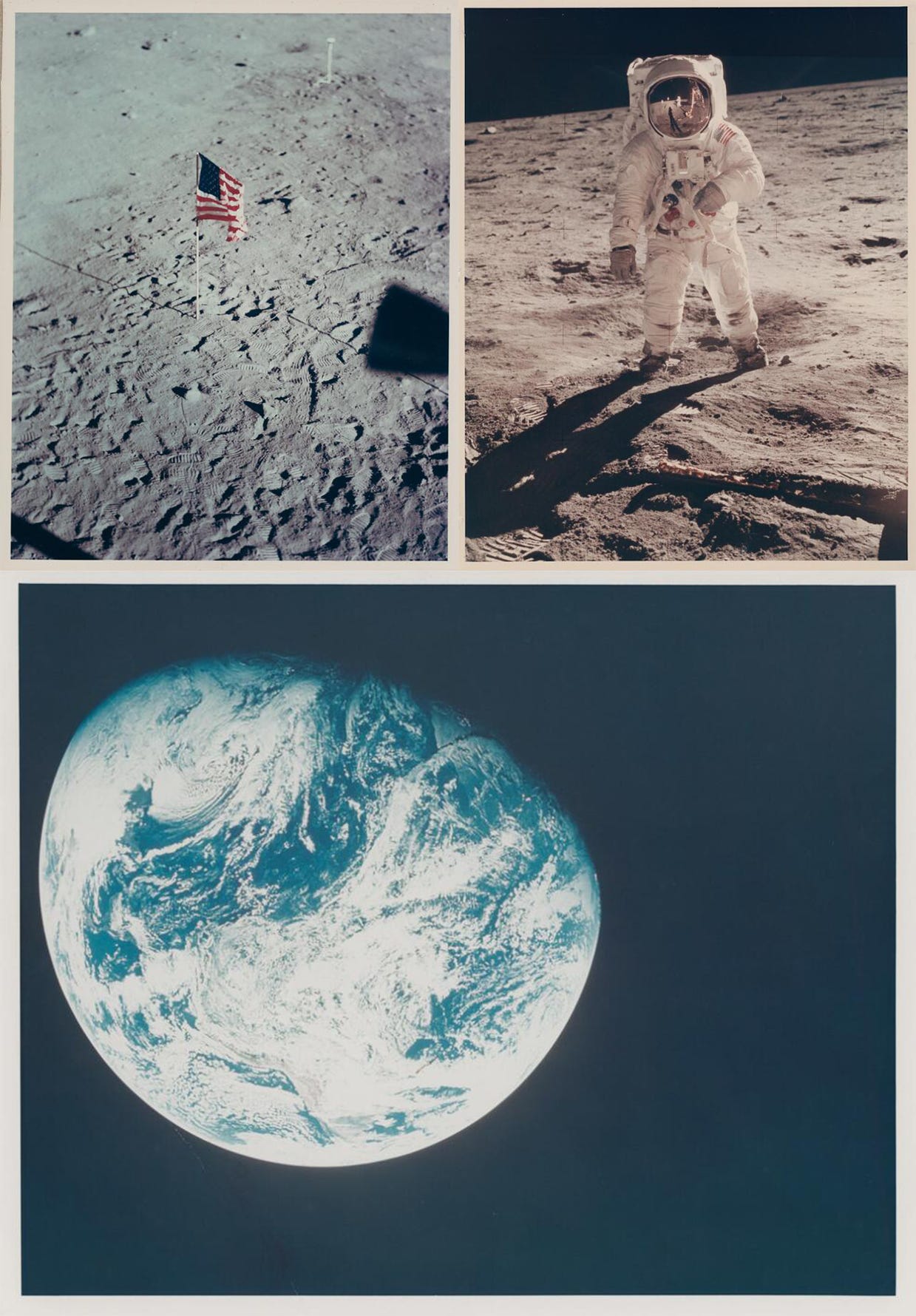Josh Hawley’s trying to lean into Jan. 6, but did he license the rights?
Plus: What Apple’s logo and trademark challenges say about fighting Big Tech
Subscribe to get the latest in visual politics delivered to your inbox:
Hello, in this week’s issue we’ll look at…
Josh Hawley’s trying to lean into Jan. 6, but did he license the rights?
What Apple’s logo and trademark challenges say about fighting Big Tech
These photos from NASA’s Apollo Program sold at auction
Ukraine made a postage stamp for the soldiers at Snake Island who told a Russian warship to go f**k itself
Josh Hawley’s trying to lean into Jan. 6, but did he license the rights?
Like a celebrity Instagram model getting busted for reposting paparazzi photos to the grid without buying them, Sen. Josh Hawley (R-Mo.) is in hot water for selling campaign merch with the infamous photo of him raising his fist on Jan. 6, 2021 that Politico says violates its intellectual property rights.
On Monday, the Politico-owned energy and environmental policy news outlet E&E News said attorneys sent a cease-and-desist to Hawley’s campaign committee over their merch. Politico asked the campaign to stop selling items with a stylized image based on a photo taken by E&E News photojournalist Francis Chung showing Hawley gesturing to a crowd outside the U.S. Capitol before the attack.
Politico’s lawyers said the campaign’s use of the image was an unauthorized violation of the company’s intellectual property rights. Hawley’s campaign told HuffPo they hadn’t received the cease-and-desist, and they haven’t stopped selling anything.

Hawley’s online shop still has items with the image available, including a $20 mug, $25 shirt, and $15 coozies that come in red, white, royal blue, navy, and camo. The items show Hawley’s campaign logo and the tagline “Show-Me Strong,” a reference to Missouri’s state nickname.
After the items first came out, Hawley said the mug was “not a pro-riot mug,” and the Associated Press, which manages rights for Chung’s photo, told Rolling Stone they had no record the Hawley campaign licensed the photo for use.
What Apple’s logo and trademark challenges say about fighting Big Tech

Don’t think about using an apple in your business name or logo unless you want to tempt a lawsuit from the first company in history to reach a market valuation of $3 trillion.
A new report from the nonprofit Tech Transparency Project said between 2019 and 2021, Apple filed 215 trademark oppositions over logos and company and product names that include apples as well as other fruits like pears and pineapples. Most were in fields unrelated to technology that posed no competition to Apple, and a lot of the logos they opposed don’t look anything like theirs.
Apple’s trademark oppositions were more numerous than the combined oppositions from Amazon, Google, Microsoft, and Facebook, and other companies with names based on common words aren’t as litigious, according to the study, which was first reported by the New York Times.
Among the companies and groups that have been hit by opposition from Apple are a public school district in Appleton, Wisc., a health writer in Australia, and a bike path in Germany.
Of the 118 cases in North America, the only time the Cupertino, Calif.-based tech giant was beaten was when it took on the U.S. government, according to the report.
Apple challenged the Department of Energy’s online research service PAGES because the company operates a word processor also called Pages. The DOE said in response that there was no likelihood of confusion between Apple’s marks and its PAGES portal, and Apple withdrew its objection in 2021.
The power of Big Tech companies like Apple overwhelms small businesses and entrepreneurs, but it can’t always beat the state, which might say something about why the urge to rein in social media and technology companies has gone bipartisan.
These photos from NASA’s Apollo Program sold at auction

A private collection of 74 original NASA photos sold at auction in Copenhagen last Wednesday for the equivalent of about $130,000.
Photos in the collection all came from NASA’s Apollo Program from 1968 to 1972, ranging from the first manned mission to orbit the moon on Apollo 8 to Apollo 17, the final mission in the program.
“The astronauts had to visually report what they experienced, but the photographs became much more than a documentation of space exploration. They became works of art,” auction house Bruun Rasmussen said in its catalog.

The highest-selling piece in the sale was a print of William Anders’ 1968 “Earthrise” which went for the equivalent of about $10,000. The collection also included a photo of the American flag on the surface of the moon taken by Buzz Aldrin that appeared on the cover of LIFE magazine, a photo of Aldrin by Neil Armstrong that appeared on the cover of National Geographic, and the very first human-taken photo of Earth, by Anders in December 1968.
Ukraine made a postage stamp for the soldiers at Snake Island who told a Russian warship to go f**k itself
Ukraine’s getting a new stamp of a soldier flipping off a Russian warship.
To commemorate the Ukrainian soldiers who defended Snake Island, Ukrposhta, Ukraine’s postal service, will release a stamp titled “Russian warship, go f**k yourself!” by Ukrainian artist Boris Groh, first deputy foreign minister Emine Dzheppar said Saturday.
Groh’s design was selected in a public vote of 20 options. Themes in his work include monsters and the apocalypse, which is fitting for the nightmare Ukraine is facing right now.
Originally thought dead, the Ukrainian navy now believes the soldiers are alive and captured by Russians.
A survey of more than 10,000 freelance designers from 144 countries found some details about the role political and social issues play in design today. Read more about the survey here. — Hunter
Subscribe:










